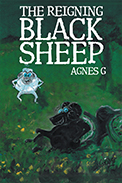
 |
Lee is the third “black sheep” in his family. His mother, the book’s author, was considered to be illegitimate; her grandmother was ostracized for her unusual lifestyle. Her son Lee, now in his forties, was diagnosed with cerebral palsy at age one. In Australia as elsewhere, conditions for special needs persons in the 1970s-80s were rather backward. Lee’s family soon became acquainted with the many extensive complications, like waiting more than a year for a needed motorized wheelchair; this would continue for many years, causing tension, anger, and exhaustion. Lee’s early schooling took place in a poorly supervised atmosphere where he underwent bizarre punishments after complaining about the “slop” the children were being fed. With gradual, significant improvements that were fought for by activist parents like the author, Lee is now able to live independently.
The author’s story is a lengthy, realistic collection of memories mixed with diatribes regarding her frustration at the many deficits in the care available for her son. She has seen Lee and others like him subjected to neglect, government bureaucracy, and even thievery over the years. She demonstrates genuine determination to find the best solutions for her special son. She does not shrink from portraying herself as sometimes enraged and disheartened and Lee as occasionally ill-tempered and stubborn. Yet Lee is also a lovable person who as an adult is now able to participate in decisions such as using his own money to foster special needs children overseas. The author shows how Lee’s progress mirrors that of the nation as it struggled to understand how most practically and compassionately to assist special needs citizens. Her competent prose provides her the means to advocate as well as to share sometimes painful personal reminiscences. Parents facing extensive, perhaps lifetime care for a special child will be encouraged by reading her reflections.